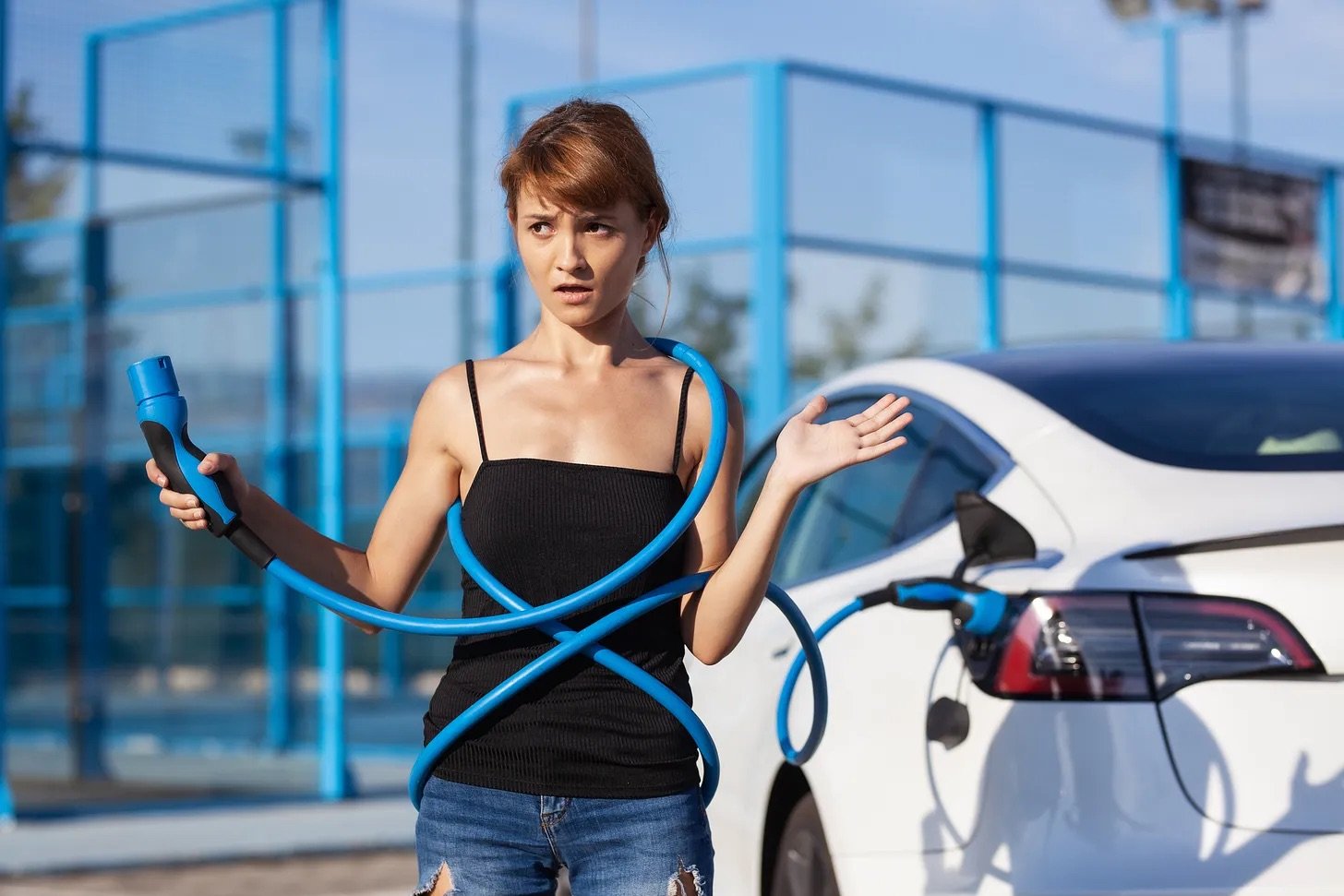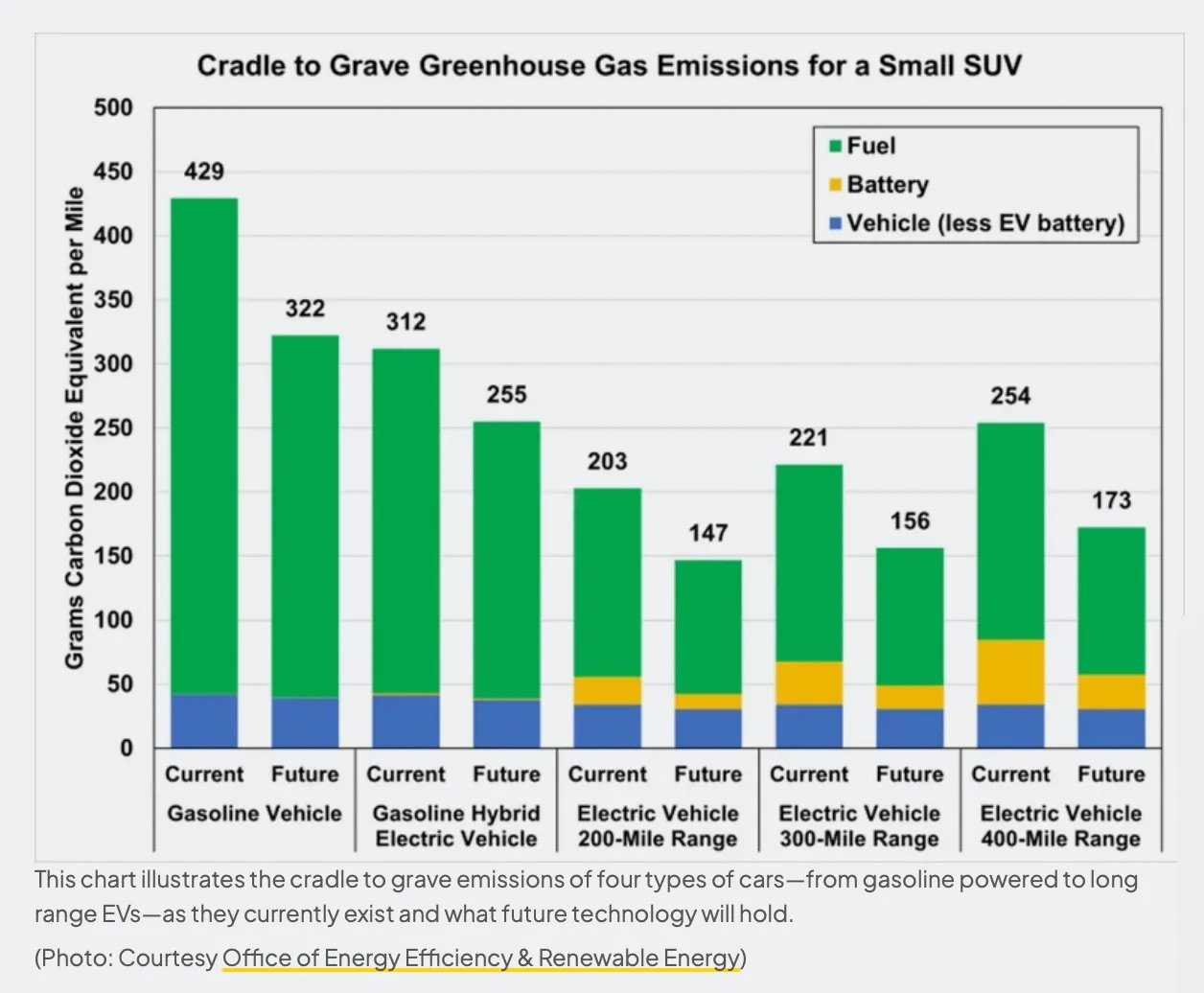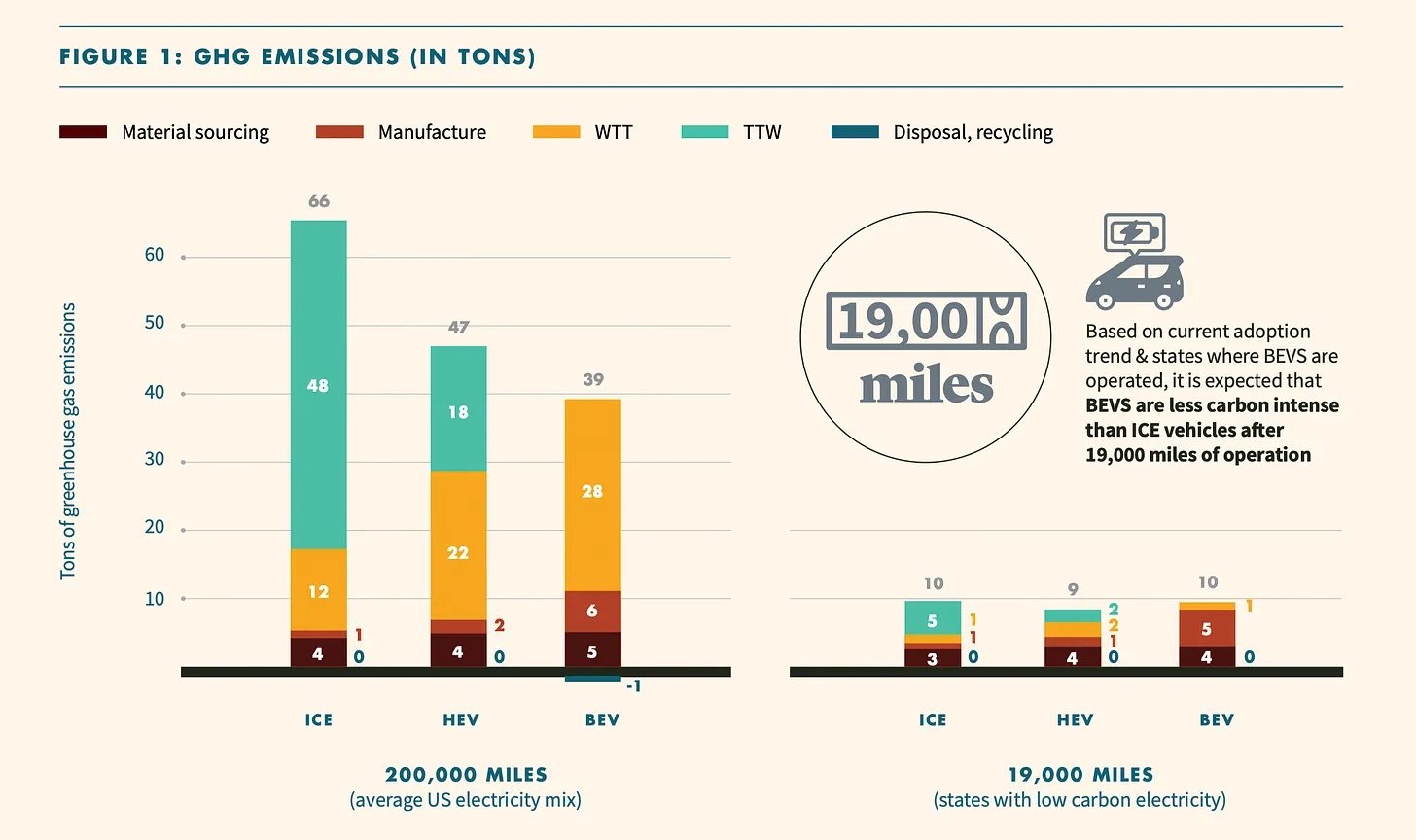A guide to electric car misinformation (part 2)



If you, like this lady, are confused about electric cars and need help, don’t worry. You’ve come to the right place. Source: Getty Images
The truth is, when it comes to the environment, there really is no such thing as a “good” car.
by EMILY ATKIN
Last week, we talked about the recent uptick in politically-motivated electric vehicle misinformation, and went through some of the most prevalent myths and misleading claims about EV policy.
This week, we’ll be going through some of the most prevalent myths and misleading claims that power-seekers and profit-seekers are spreading about EVs in general.
Financially-motivated EV misinformation comes from both sides of the aisle (the lane?). Industries that see EVs as a threat exaggerate their harms in a bid to get you to hate EVs. And industries that profit from EVs greenwash their benefits in a bid to get you to love EVs.
Most often, you can recognize EV misinformation by its attempts to promote black and white thinking. It’ll either be “Electric cars are bad and gas cars are good” or “Electric cars are good and gas cars are bad.”
But the truth is, when it comes to the environment, there really is no such thing as a “good” car. The real question is: how bad are these cars in relation to one another? This is where most EV misinformation lies.
Misleading: It’s more environmentally harmful to make an EV than a gas car.
This statement, by itself, is technically true. ”To run, EVs require six times the mineral input, by weight, of conventional vehicles, excluding steel and aluminum,” the Washington Post reported in 2023.
That’s because each EV has a 900-pound battery block containing roughly 353 pounds of crucial materials or metals including cobalt, nickel, lithium, manganese, aluminum and copper. Gas cars don’t have that, so it’s less emissions-intensive to create a gas car than an electric car.
What’s misleading about the statement is not the statement itself, but the context in which gas car proponents say it. Usually, they’re saying it to convince you that electric cars are way worse than gas cars for the environment. And that’s just frankly illogical, because the vast majority of pollution that comes from cars does not come from making the car. It comes from driving the car.
Screenshot: Outside Magazine
If you’re only buying a car to simply look at it and never drive it, then absolutely, it would be way more environmentally-friendly to buy a gas-powered car.
But if you do, in fact, intend to actually drive the car you buy, then an EV is going to be the less environmentally harmful choice—even if coal is part of your local electricity mix.
That’s not according to me, either. That’s according to a peer-reviewed study funded by the Ford Motor Company, a company that makes most of its profits from gas-powered vehicles.
That study, conducted by the University of Michigan, found that EVs become less emissions-intensive than gas cars after “1.4 to 1.5 years for sedans, 1.6 to 1.9 years for S.U.V.s and about 1.6 years for pickup trucks, based on the average number of vehicle miles traveled in the United States.”
A chart from the Fuels Institute study shows the emissions differences between gas cars (ICE), hybrid cars (HEV), and electric cars (BEV). Source: Fuels Institute
Another study, conducted by Ricardo PLC for the nonprofit Fuels Institute, similarly found that driving a gas car is far worse for the planet than EVs, even when coal is part of the electricity mix.
Over 200,000 miles of driving, it found, a gas car emits 66 tons of greenhouse gas emissions, while an EV using the current average U.S. electricity mix emits 39 tons. In states that already have low-carbon electricity, an EV becomes less emissions-intensive than a gas car within 19,000 miles.



